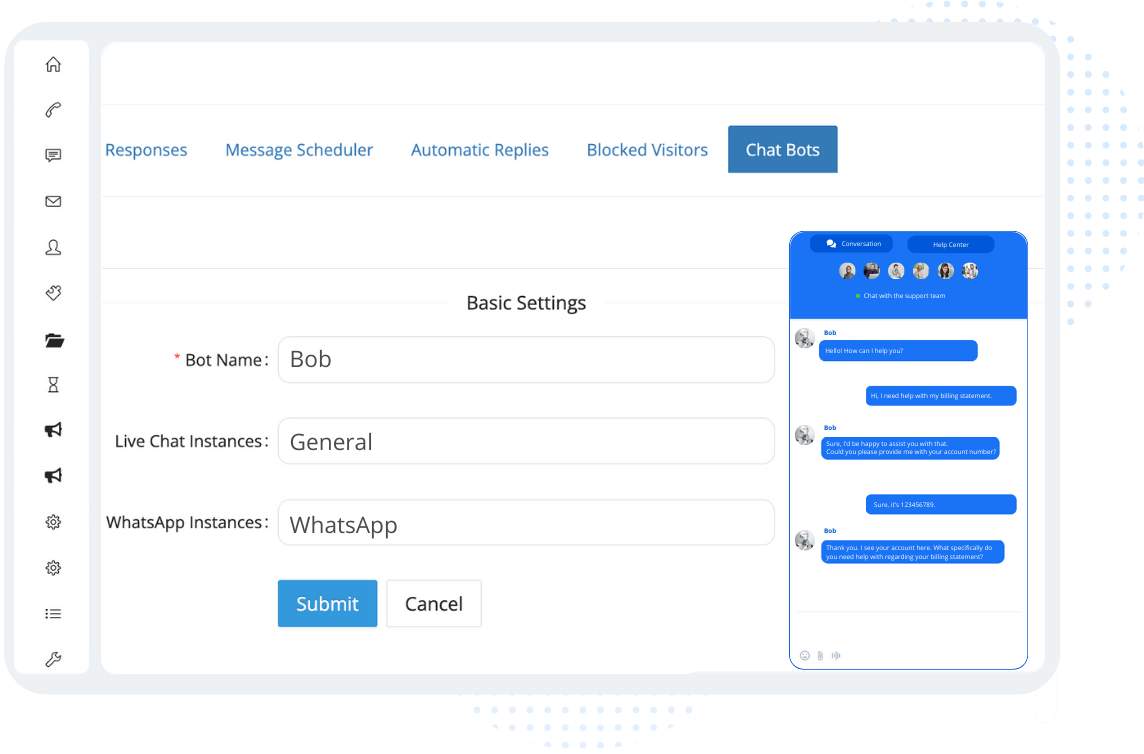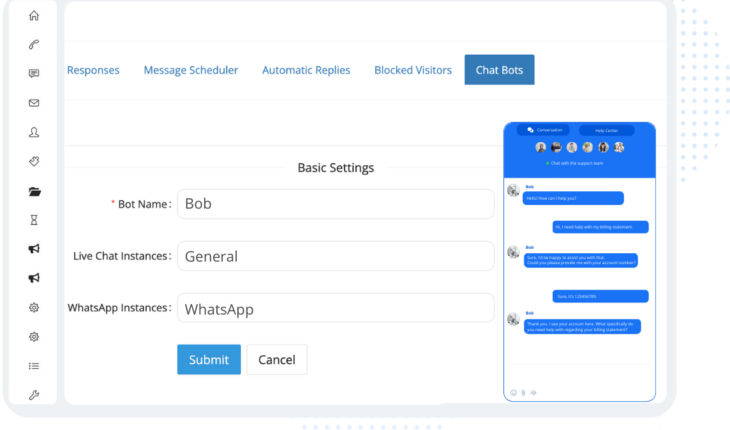Why Call Centers Need AI Technology
1. Better Customer Experience
Virtual assistants and platforms like Nectar Desk, which features a built-in chatbot, respond to customer inquiries instantly. This helps resolve simple issues quickly without long wait times. Thus, clients get high-quality service while agents focus on more complex tasks.

2. 24/7 Availability
Digital solutions allow call centers to assist customers at any time, meeting customer expectations for round-the-clock service. This is especially helpful for companies with international clients who live in different time zones.
3. Improved Productivity
Automated systems handle repetitive tasks like routing calls, creating tickets, and answering FAQs. This not only speeds up processes but also helps manage high call volumes efficiently. It also improves agent performance, allowing them to focus on more complex issues.
4. Cost Cutting
AI handles a significant number of interactions. Therefore, call centers can operate with smaller teams, reducing labor costs without compromising service quality. Furthermore, it helps lower operational costs, including expenses related to training and onboarding new staff.
5. Personalized Customer Service
Advanced tools analyze customer data to provide the right solutions and suggestions. Thus, contact centers strengthen customer loyalty.
6. Multilingual Support
Сall centers don’t necessarily need to provide language training. AI-powered translation tools and voice assistants can manage multilingual support in real time. This helps companies easily serve customers in different languages.
7. Reduced Agent Burnout
Finally, virtual agents handle routine tasks, making work easier for human agents. This reduces stress and helps them feel more satisfied with their jobs.
Regulatory Framework for AI in Canada & USA
Using AI in a call center is beneficial, but businesses need to know legal rules to avoid sue cases. Both Canada and the USA have strict laws about privacy, data use, and fair practices. So, you must meet these requirements to avoid legal trouble and gain customer trust.
Privacy Laws
Personal Information Protection and Electronic Documents Act (PIPEDA) law controls how businesses collect and use personal data. Therefore, call centers need to get clear permission from customers before collecting their information.
They also must use the data only for the reasons they told the customer. New rules under the Consumer Privacy Protection Act (CPPA) will make these requirements even stricter, focusing on data security.
In the USA, each state may have its own privacy laws. For example, the California Consumer Privacy Act (CCPA) gives customers the right to see, delete, or stop the sale of their personal information. Thus, call centers working across states must follow the most restrictive rules.
Transparency of Using AI in a Call Center
Call centers should inform customers when AI is handling their questions. They must also offer the option to transfer to the agent if needed. In Canada, guidelines such as the Directive on Automated Decision-Making focus on fairness and accountability. So, AI systems should be checked regularly to prevent unfair treatment of customers.
Additionally, agencies such as the Federal Trade Commission (FTC) advise reviewing AI models. This is necessary to verify their fairness and accuracy in the USA.
Call Recording and Monitoring Requirements
In Canada, contact centers must inform customers if their calls are being recorded. Moreover, you must also explain the reason for doing so.
If we talk about the USA, you must follow your state laws. Some of them allow recording a call if one person agrees to it. Other states require everyone on the call to approve it.
Cross-Border Data Sharing
Sharing customer data across borders is another important issue. In Canada, businesses must be sure that foreign partners follow privacy standards similar to those in Canada. In the USA, companies handling data from European customers must follow the General Data Protection Regulation (GDPR).
Penalties for Non-Compliance of Using AI in Call Center
Fines under PIPEDA can reach up to $100,000 for each violation. Besides, the CPPA sets stricter penalties of up to $10 million or 3% of global revenue. In the USA, violating the CCPA can result in fines of $7,500 per violation, while breaches of the CAN-SPAM Act can cost up to $46,517 per email.





